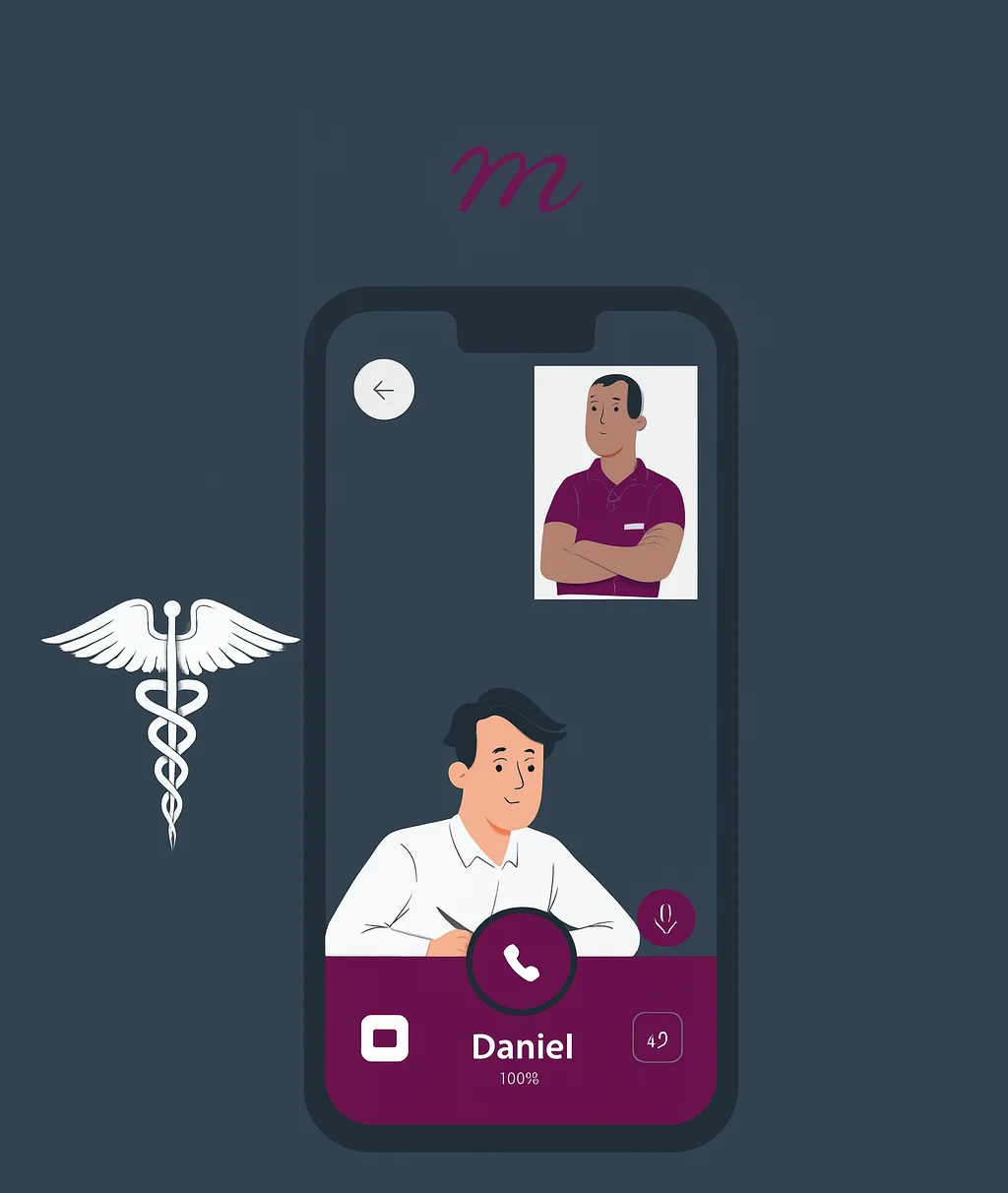Non-HIPAA-compliant telehealth platforms are the root cause of several challenges for therapists in private practice. These range from data breaches to risks of legal penalties. They could also result in client distrust. Due to this, mental healthcare providers avoid them at all costs.
There are several HIPAA-compliant telehealth platforms therapists can choose. As a result, practitioners are sometimes swamped and unsure about which platform is best. This article will show you the 10 best HIPAA-compliant telehealth platforms. We also examine their features so that you can select the one that is most suitable for your practice.
Best HIPAA-Compliant Telehealth Platforms for Therapists in 2025
1. SimplePractice HIPAA-Compliant Telehealth Software
SimplePractice is a popular HIPAA Compliant telehealth platform for mental health practitioners. It features several administrative tools in an intuitive user interface. Some of its most popular features are the client portal, notes templates and billing. It also incorporates telehealth. This makes it easier to hold sessions remotely.
Features of SimplePractice
Telehealth
The Telehealth feature allows you to hold remote therapy sessions with clients. This eliminates the restriction of distance and gives you more flexibility.
Secure Messaging
SimplePractice is a HIPAA-compliant platform. It ensures that all interactions between practitioners and their clients are safe.
Time Saving
SimplePractice has features like automated billing, claim tracking and scheduling. This reduces your administrative workload and saves you time.
Pros of SimplePractice
- It has an easy-to-use portal.
- SimplePractice is ideal for both solo practices and larger group practices.
- It has customizable notes and templates that make documentation easier and faster.
Cons of SimplePractice
- Its payment plan could be quite pricey for solo practices.
2. TheraNest HIPAA-Compliant Telehealth Platform for Mental Health Professionals
TheraNest is a trusted Practice Management system, PMS, for mental health professionals. It has numerous tools that simplify admin tasks and improve client engagements.
Features of TheraNest
Intuitive Client Portal
TheraNest has an easy-to-use client portal. From the portal, clients can easily schedule appointments and complete forms. They can also relate safely with their therapists.
Integrated Telehealth
Telehealth is securely integrated into TheraNest. Clients do not need to visit their service providers before having a session.
Billing and Payment
The platform’s billing and payment features streamline financial management. Practitioners can securely generate invoices, and process insurance claims. They can also process and accept payments via the platform.
Pros of TheraNest
- The interface is intuitive and easy to operate.
- It supports automated reminders. Hence, reducing missed appointments.
- It has several customisable templates that aid documentation.
Cons of TheraNest
- Practitioners might need some training to use the advanced features.
- TheraNest might be a pricey option for small practices.
- It solely depends on internet connectivity to function.
3. TherapyNotes HIPAA-Compliant EHR and Telehealth Platform
TherapyNotes is a cloud-hosted EHR system for mental health care providers. It has various tools that help improve documentation and overall practice operations. Its platform is very intuitive. Hence, making it easy to use.
Features of TherapyNotes
Scheduling and Calendar Management
TherapyNotes has an integrated calendar that makes appointment scheduling easier. From the platform, clients can easily confirm the availability of their therapists before booking appointments. Therapists can also set up automated reminders in order to reduce no-shows.
Task Management
TherapyNotes allows practitioners to create and assign tasks. They can also assign timelines so that they have a more organized schedule.
Client Portal
TherapyNotes has a client portal that is easy to navigate. From the portal, clients can fill out intake forms, and schedule appointments. They can also interact with their therapists securely from the portal.
Pros of TherapyNotes
- Its customizable documentation templates eliminate the stress of writing notes from scratch.
- TherapyNotes makes insurance billing and claims management easier for practitioners.
Cons of TherapyNotes
- It is quite pricey for solo practitioners.
- The interface has a steep learning curve. Consequently, new users will need some training to navigate the platform.
- TherapyNotes has some restrictions in the notes customization.
4. Zoom For Healthcare – HIPAA-Compliant Telehealth Solution
Zoom for Healthcare is a variant of Zoom tailored to healthcare practitioners. It enhances telehealth consultations and clinical collaborations. The platform is HIPAA-compliant. So, all communication between clients and practitioners is safe.
Features of Zoom For Healthcare
Virtual Waiting Room
Zoom for Healthcare has a virtual waiting room. This helps practitioners manage client queues effectively.
Multi-Device Support
Zoom for healthcare is compatible with several devices. It effectively works on desktops, tablets, and smartphones. This aids flexibility and comfort.
Collaboration Tools
Zoom for Healthcare has several collaboration features that aid group practice. Some of these features include screen sharing, annotation, and breakout rooms.
Pros of Zoom For Healthcare
- Zoom for Healthcare has an intuitive interface. This enables clients and practitioners ease of platform navigation.
- Telehealth reduces in-person visits. It lessens the operational costs for clients and health practitioners alike.
- Clients and practitioners can access the platform from anywhere. This enhances flexibility.
Cons of Zoom For Healthcare
- The platform is dependent on internet connectivity and poor networks can affect consultation.
- Clients who are unfamiliar with digital tools may find it difficult to navigate the platform.
5. TheraPlatform HIPAA-Compliant Telehealth and EMR Software
TheraPlatform is a cloud-based EMR and telehealth platform for mental health practitioners. It is an integrated platform that assists therapists in administrative responsibilities.
Features of TheraPlatform
Practice Management Features
TheraPlatform has scheduling, billing and document management features. This spares practitioners more time to focus on vital tasks.
Client Portal
TheraPlatform has a dedicated client platform. From the portal, clients can access resources, schedule appointments and fill out forms. They can also interact with their mental health practitioner securely.
Appointment Reminders
TheraPlatform allows therapists to set up automated emails and reminders. Thus, ensuring clients are reminded about their appointments. This in turn reduces the frequency of no-shows.
Pros of TheraPlatform
- TheraPlatform is a specialized software for therapists. Its tools and features are tailored for mental health professionals.
- It is an all-in-one solution for telehealth, billing and client management. This makes it unnecessary to use multiple software solutions.
- It is a HIPAA-compliant software solution. Hence, all communication on the platform is secure.
Cons of TheraPlatform
- TheraPlatform might be quite expensive for solo practice.
- Practitioners may require some training to use the advanced features on the platform.
- The software relies heavily on internet connectivity.
6. HIPAA Video – Secure HIPAA-Compliant Telehealth Platform
HIPAA Video is an innovative EMR tool for mental healthcare practitioners. It has several features that eases the admin functions of healthcare providers. Hence, giving them more time to focus on clients.
Features of HIPAA Video
User Friendly Interface
HIPAA video has an intuitive user interface. This makes it a suitable solution for tech-savvy and users that are not tech-inclined.
Integrated Scheduling and Reminders
HIPAA Video supports appointment scheduling and automated reminders. This reduces the risk of missed appointments for clients.
Multi-device Compatibility
HIPAA Video is optimized for different device types. This gives therapists more flexibility in conducting virtual therapy sessions. practice.
Customizable Branding
The software allows practices to customize the platform with a touch of their brand. It gives the consultation sessions a more professional touch.
Pros of HIPAA Video
- HIPAA Video is an HIPAA-compliant platform. So, all client information is safe from unauthorized persons.
- It is a cost-effective alternative to physical consultations.
- HIPAA video is a scalable software. This makes it a handy solution for small and large practices alike.
Cons of HIPAA Video
- The subscription cost could be quite expensive for small practices.
- HIPAA Video requires internet connectivity to function.
- Despite its user-friendly interface, it has a steep learning curve for new users.
7. Medici Telehealth Platform for Therapists
Medici is a comprehensive telemedicine platform for Modern Healthcare. It features powerful tools that streamline admin tasks for mental health professionals.
Features of Medici
Group Messaging
Medici supports group chats. This is a handy feature for complex cases because it allows therapists to include family members in consultation sessions.
Billing Integration
Medici’s billing integration allows practitioners to process payment and insurance claims from the software.
Secure Messaging
The platform is fully HIPAA Compliant. Hence, all conversations between practitioners and their clients are secure.
Pros of Medici
- Medici is an all-in-one platform. It eliminates the need for using several software.
- Clients can communicate easily with their therapists on Medici.
- Medici is more cost-effective than physical consultations.
Cons of Medici
- Medici is a cloud-based software. But, its functionality is dependent on internet connectivity.
- Its initial set-up cost is quite pricey for solo practice and small businesses.
- Despite its convenience, Medici can’t completely replace physical consultations. This is because some consultations require physical examination of clients.
8. Doxy.me HIPAA-Compliant Telehealth Platform for Therapists
Doxy.me is a recognized telehealth platform for virtual consultations. It has a simple user interface which operates solely on the Web. This makes it easy for practitioners and clients to access the platform.
Features of Doxy.me
HIPAA-Compliant
Doxy.me is a HIPAA-compliant telemedicine platform. As a result, unauthorized persons do not have access to interactions between practitioners and clients.
Customizable Waiting Room
The platform allows practitioners to customize the waiting room with branded materials. This gives room for a comfortable yet professional experience.
Unlimited Sessions
All plans on Doxy.me have access to unlimited video calls. It gives therapists the opportunity to hold long therapy sessions when needed.
Pros of Doxy.me
- It has a free plan with basic features.
- The platform is very easy to use and user-friendly.
- Doxy.me is a scalable platform that serves solo practices and large organizations.
- It is a Web-based platform making it widely accessible.
Cons of Doxy.me
- The free plan lacks features like HD Video and group calls.
- The platform does not integrate with electronic health records.
- The customization of the waiting room is quite limited.
9. Amwell HIPAA-Compliant Telehealth Solution with EHR Integration
Amwell is a comprehensive Telehealth Platform that aids efficient virtual client care. It offers features like Telehealth, EHR integration and a client portal. Thus, making it a great choice for various practice sizes.
Features of Amwell
Integration With Electronic Health Records System
Amwell integrates seamlessly with EHR systems. This makes it easier for healthcare providers to access client records and provide personalized care.
Comprehensive Telehealth Platform
Amwell supports Telehealth. So, practitioners and their clients can hold sessions comfortably.
Scheduling
Amwell supports appointment scheduling and automated reminders. This makes it easier for clients to book consultations at their convenience.
Pros of Amwell
- Amwell addresses several healthcare needs making it a suitable solution for practices with multi-specialities.
- It has an intuitive, easy-to-use interface.
- Amwell adheres strictly to HIPAA standards. As a result, practitioners can trust the safety of their consultations on the platform.
Cons of Amwell
- Amwell could be quite pricey for solo practices.
- Disruption in internet connectivity could have an adverse effect on consultation sessions.
- Amwell customization options are quite limited. They may not meet the specific needs of every private practice.
10. Doximity HIPAA-Compliant Telehealth and Networking Platform
Doximity offers practitioners several tools that enhance collaboration and improve healthcare. It is often appraised for its amazing telehealth tools.
Features of Doximity
Professional Networking
Doximity has several tools that help mental health professionals connect with other practitioners. This fosters collaboration and expansion of professional networks.
Dialer and Video Call
Doximity has a dialer feature that allows therapists to display their official line while using a personal device. This helps them protect their privacy while being professional.
HIPAA Compliant
The platform is fully HIPAA Compliant. This reduces the risk of breaches and exorbitant penalties.
Pros of Doximity
- Its telehealth integration aids virtual consultations.
- All interactions between service providers and their clients are safe.
- Mental healthcare professionals can build their network and access opportunities that will advance their careers.
Cons of Doximity
- It is primarily for healthcare practitioners. So, it doesn’t have numerous tools for other roles.
- Doximity is restricted to the U.S for U.S based licensed healthcare professionals.
- Poor internet connectivity affects communication and consultation on the platform.
Conclusion: Why HIPAA-Compliant Telehealth Solutions Matter for Therapists
HIPAA-Compliant Telehealth Platforms are a vital part of your tool set as a therapist. They help handle your administrative tasks. Hence, giving you more time to focus on activities that matter like providing better client care. Additionally, their telehealth features aid your flexibility by allowing you to practice from the comfort of your location.
Frequently Asked Questions About HIPAA-Compliant Telehealth Platforms
1. What Makes a Telehealth Platform HIPAA Compliant?
A HIPAA Compliant Telehealth Platform must contain features like end-to-end encryption and secure data storage. It should have user authentication protocols.
2. Can Therapists Use Zoom For Regular Telehealth Sessions?
Yes, therapists can use Zoom for consultation sessions. However, the regular Zoom does not meet the HIPAA-compliance standards. As an alternative, practitioners can use the Zoom for Healthcare.
3. Are Free Telehealth Platforms HIPAA Compliant?
Some free platforms like Doxy.me are HIPAA compliant. However, these platforms are limited in function.
4. Do Telehealth Platforms Support Group Therapy Sessions?
Yes. Some platforms like TheraNest and Zoom for Healthcare support group sessions.
Why other mental health professionals love Mentalyc

“If I were recommending this software to a colleague, I would tell them that it is the best thing that they could do for their practice.”
Licensed Professional Counselor

“Do yourself a favor, make your life easier. Use the tools that are readily available … I found Mentalyc to be one of the best tools that I’ve ever used.”
Licensed Marriage and Family Therapist

“It immediately changed my quality of life, personally and professionally. I went from 3–4 hours a week of notes to 1 hour at most … that alone is invaluable personally and professionally.”
Owner/Independently Licensed Marriage & Family Therapist (IMFT)

“For those who have hesitations … It is a lifesaver. It will change your life and you have more time to be present with your patients.”
Licensed Clinical Social Worker






